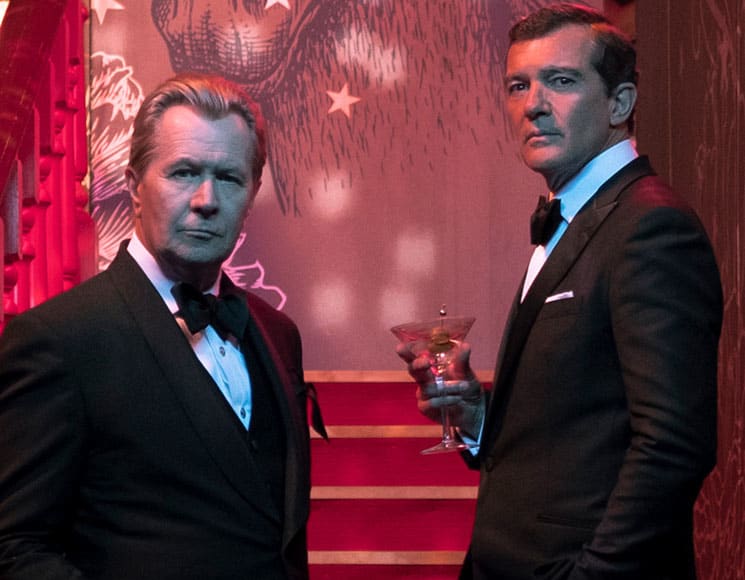At one point in The Laundromat, Gary Oldman and Antonio Banderas — each in character as Jürgen Mossack and Ramón Fonseca, respectively — turn to the camera and hint to the film's writers' and director's culpability in the system that destroys Meryl Streep's character's life. This is just part and parcel of the self-awareness that redeems the film.
Directed by Steven Soderbergh and written by Scott Z. Burns, The Laundromat is about money. Streep plays Ellen Martin, a meek, soft-voiced woman whose husband dies in a freak ferry accident. Martin is perplexed when she's denied compensation and begins to investigate. She uncovers insurance fraud and ludicrously rich people.
Martin's narrative is embedded within an entrepreneurial infomercial (or a Humbert Humbert-style defence, depending on how you want to look at it) delivered by Mossack and Fonseca, founding partners of the Panama City law firm that represents the insurance company Martin begins investigating. Mossack and Fonseca's words are themselves personified by their clients the world over.
The film is replete with fourth-wall breaking, and Soderbergh and team deliver the story through various lenses. One scene depicts Oldman and Banderas together in a single jail cell in their shirtsleeves, while around them are two cells of the same size, each full to the brim with people not as rich as Mossack and Fonseca. The defamed lawyers are released suddenly and they, unsurprised, saunter over to a rack holding up their pristine coats. Meanwhile, Martin wonders when the meek will inherit the Earth. It's this kind of juxtaposition and storytelling that saves the film from an existential bad faith.
Oldman is a delight to watch, and Banderas manages to be sympathetic and assholey simultaneously. Streep is gentle but also vivacious. The film is studded with big names — Jeffrey Wright, David Schwimmer and Sharon Stone, to name a few. This is an intelligent movie that manages to talk about very heady things in a way just this side of the melodramatic, of hypocrisy.
Whether its self-awareness excuses the rich's culpability, however, is another matter altogether.
(Netflix)Directed by Steven Soderbergh and written by Scott Z. Burns, The Laundromat is about money. Streep plays Ellen Martin, a meek, soft-voiced woman whose husband dies in a freak ferry accident. Martin is perplexed when she's denied compensation and begins to investigate. She uncovers insurance fraud and ludicrously rich people.
Martin's narrative is embedded within an entrepreneurial infomercial (or a Humbert Humbert-style defence, depending on how you want to look at it) delivered by Mossack and Fonseca, founding partners of the Panama City law firm that represents the insurance company Martin begins investigating. Mossack and Fonseca's words are themselves personified by their clients the world over.
The film is replete with fourth-wall breaking, and Soderbergh and team deliver the story through various lenses. One scene depicts Oldman and Banderas together in a single jail cell in their shirtsleeves, while around them are two cells of the same size, each full to the brim with people not as rich as Mossack and Fonseca. The defamed lawyers are released suddenly and they, unsurprised, saunter over to a rack holding up their pristine coats. Meanwhile, Martin wonders when the meek will inherit the Earth. It's this kind of juxtaposition and storytelling that saves the film from an existential bad faith.
Oldman is a delight to watch, and Banderas manages to be sympathetic and assholey simultaneously. Streep is gentle but also vivacious. The film is studded with big names — Jeffrey Wright, David Schwimmer and Sharon Stone, to name a few. This is an intelligent movie that manages to talk about very heady things in a way just this side of the melodramatic, of hypocrisy.
Whether its self-awareness excuses the rich's culpability, however, is another matter altogether.
